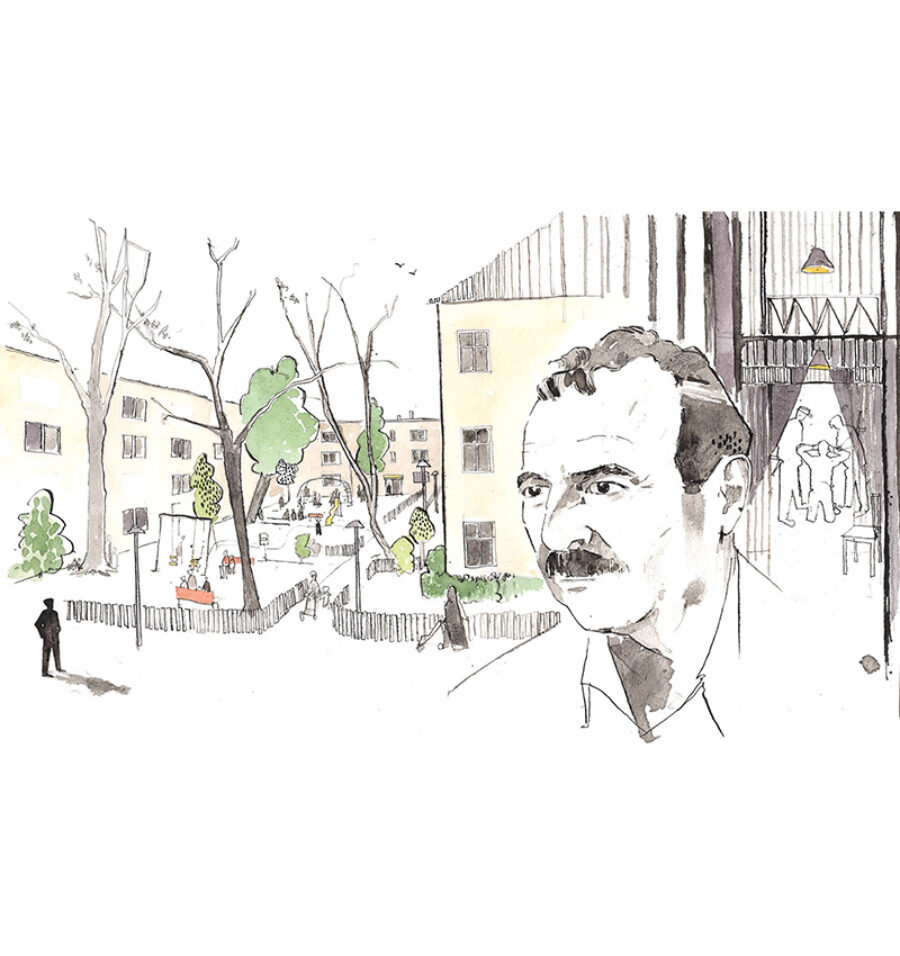In Plain Sight

Illustrations by George Butler. Source photograph © John MacDougall/AFP/Getty Images
Anwar al-Bunni, who fled Syria in 2014, was at the time one of the country’s leading human-rights lawyers. Born into a prominent family of leftists, al-Bunni had spent his days drinking coffee and smoking cigarettes on the steps of the Palace of Justice, the seat of the high court in Damascus, where the families of imprisoned dissidents and activists knew they could find him. Al-Bunni himself had been jailed twice, for speaking out about torture in Syria’s prisons and calling for democratic reform. His devotion to his work left little room for his family or life’s other pleasures. Damascus…





































































































